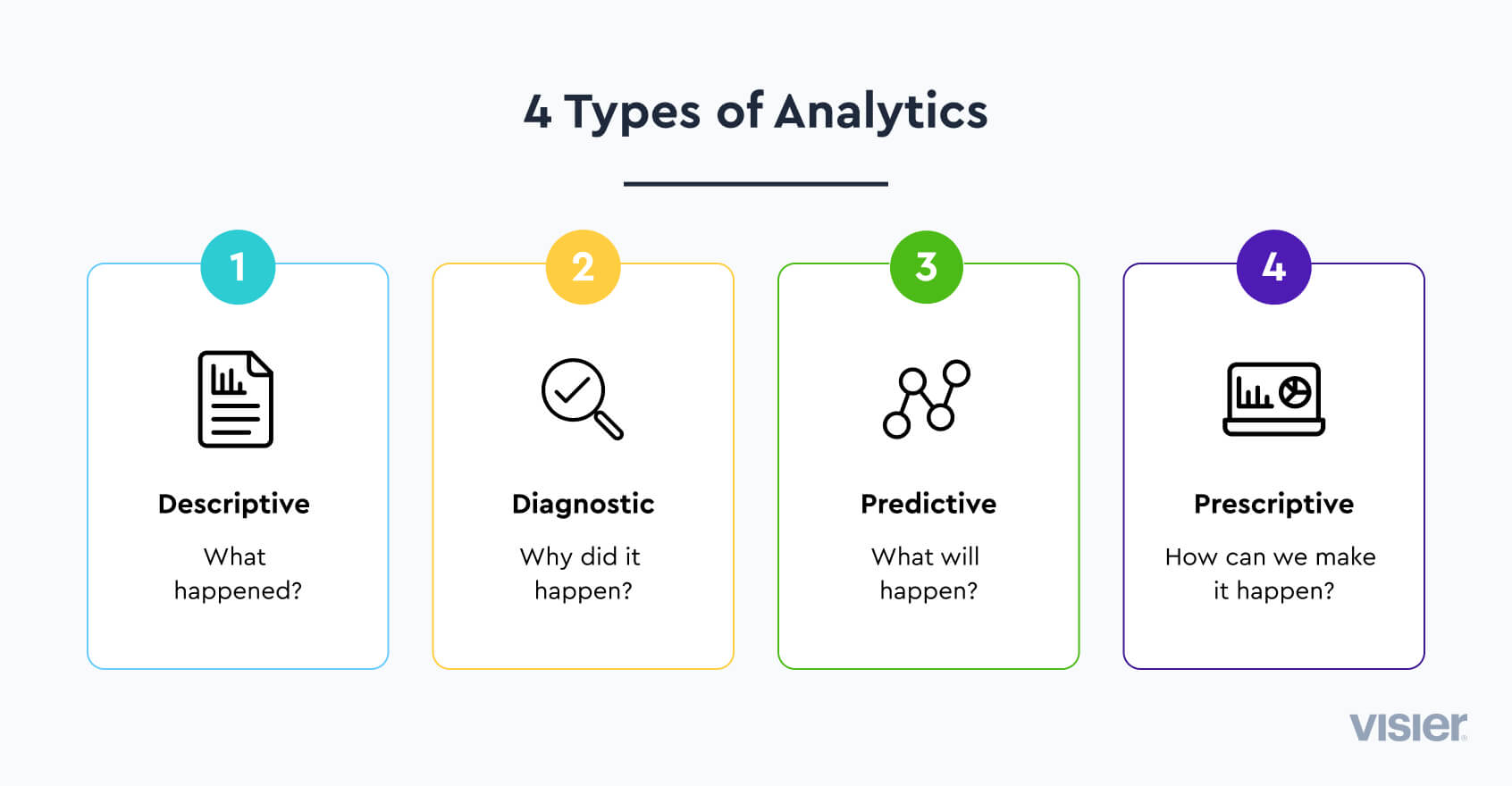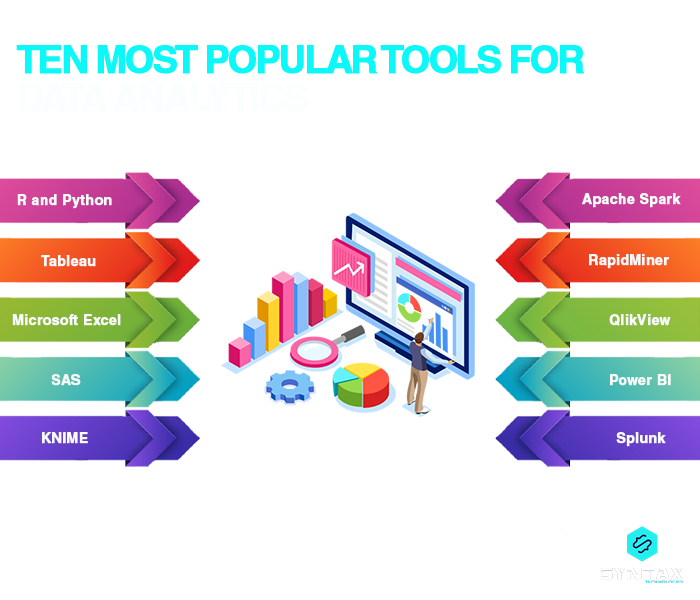Streamline Your Data Management with Integrated Analytics Tools
Streamline Your Data Management with Integrated Analytics Tools
Blog Article
Maximize Development: How Analytics Drive Better Approaches
In today's data-driven landscape, companies increasingly identify the critical duty of analytics fit effective growth strategies. By utilizing data insights, businesses can fine-tune their operational strategies, expect market changes, and improve consumer interaction. Nonetheless, the difficulty exists not only in gathering information but in properly interpreting it to drive substantial outcomes. As we discover the key benefits and methods related to analytics, an important inquiry emerges: exactly how can companies guarantee they are leveraging these understandings to unlock their full capacity? The response might redefine the future of critical planning.
Comprehending Information Analytics
Information analytics is a methodical computational evaluation of data that allows organizations to discover significant patterns and insights. This process encompasses a variety of strategies, consisting of analytical analysis, anticipating modeling, and information mining, which jointly aim to transform raw data into workable details - Analytics. By using these techniques, companies can make enlightened choices that are rooted in empirical evidence rather than intuition alone
The structure of information analytics depends on its capability to deal with large amounts of information from varied resources. This consists of organized data, such as databases, and disorganized information, including social media communications and client comments. Through making use of specialized software program and tools, analysts can remove and process this data successfully, determining patterns and correlations that might not be promptly obvious.
Understanding information analytics likewise involves identifying the value of data top quality and stability. Accurate and trusted information is important for meaningful evaluation; thus, companies must apply robust information governance techniques. The iterative nature of analytics enables for constant improvement and improvement of methods, guaranteeing that companies continue to be nimble in the face of altering market characteristics and consumer habits.
Trick Benefits of Analytics

One of the vital advantages of analytics is its capacity to supply actionable insights. Organizations can quickly assess substantial quantities of data, uncovering patterns that may not be quickly noticeable.
An additional considerable benefit is boosted client understanding. Analytics tools enable organizations to section their target market, track consumer behavior, and customize advertising efforts. This targeted strategy not just improves consumer interaction but additionally drives higher conversion rates.

Implementing Analytics Strategies
To completely understand the advantages of analytics, organizations have to adopt structured methods for implementation. This begins with plainly specifying objectives that align with wider organization goals. By establishing certain, quantifiable outcomes, organizations can focus their analytics initiatives on locations that produce the highest return on investment.
Next, companies need to focus on data governance to guarantee the stability and protection of the information being assessed. This involves establishing protocols for information collection, storage space, and access while adhering to relevant regulations. Guaranteeing top notch information is critical for generating meaningful understandings.
Moreover, promoting a society of data-driven decision-making is vital. This needs training workers to interpret analytics searchings for and motivating cooperation throughout departments. When groups recognize the worth of analytics, they are extra most likely to incorporate insights into their daily procedures.
Last but not least, companies must consistently assess and fine-tune their analytics methods. The landscape of data and technology is consistently advancing, and staying adaptable will certainly enable organizations to utilize brand-new tools and methods successfully. By executing these organized methods, organizations can make the most of the influence of their analytics efforts and drive sustainable development.
Tools for Reliable Analysis
Effective evaluation relies on a selection of tools that promote the extraction of understandings from data - Analytics. These devices can range from simple spread sheet applications to sophisticated maker learning systems, each offering a special purpose in the analytical procedure
Data visualization software, such as Tableau and Power BI, plays a critical role in transforming intricate datasets into reasonable visual representations. These tools allow experts to identify patterns and patterns rapidly, permitting more educated decision-making.
Analytical evaluation software application, like R and advice SAS, uses sophisticated capacities for performing thorough analyses, consisting of regression, theory screening, and predictive modeling - Analytics. These attributes empower companies to attract significant conclusions from their information, recognizing potential chances and dangers
In addition, data source management systems such as SQL and NoSQL databases offer the required facilities for keeping and inquiring huge quantities of information effectively. They make certain that information is arranged and obtainable for evaluation.
Last but not least, organization knowledge systems incorporate different information sources, offering an extensive view of organizational performance. By utilizing these devices properly, organizations can boost their logical abilities, enabling them to develop strategies that make the hop over to these guys most of growth and improve total efficiency.
Study of Success
Successful companies commonly utilize information analytics to drive impactful strategies, as evidenced by a number of significant instance studies. By using these insights, Netflix has successfully tailored its content recommendations, resulting in boosted user involvement and client retention.

Additionally, Starbucks employs data analytics to identify ideal shop places and improve its item offerings. By checking out customer demographics and purchasing patterns, Starbucks efficiently recognizes high-potential markets and tailors its food selection to regional tastes, driving sales and consumer commitment.
These case studies illustrate that effective usage of data analytics can cause calculated benefits, promoting advancement and development within organizations across different industries.
Conclusion
In conclusion, the integration of analytics into business blog here approaches significantly boosts decision-making procedures and cultivates sustainable growth. By leveraging data-driven insights, organizations can recognize patterns, expect market shifts, and maximize procedures. The efficient implementation of analytics tools better sustains agility and innovation, making it possible for companies to navigate affordable landscapes with better precision. Ultimately, a dedication to analytics not just drives immediate efficiency enhancements but additionally protects long-term success in an ever-evolving industry.
Information analytics is a methodical computational evaluation of data that makes it possible for organizations to reveal significant patterns and understandings.Understanding information analytics also includes recognizing the value of information high quality and honesty. Reputable and exact data is vital for meaningful analysis; hence, organizations should execute robust data administration methods.Next, companies must focus on data governance to make sure the honesty and safety of the information being analyzed.Successful companies frequently take advantage of information analytics to drive impactful strategies, as confirmed by a number of remarkable case studies.
Report this page